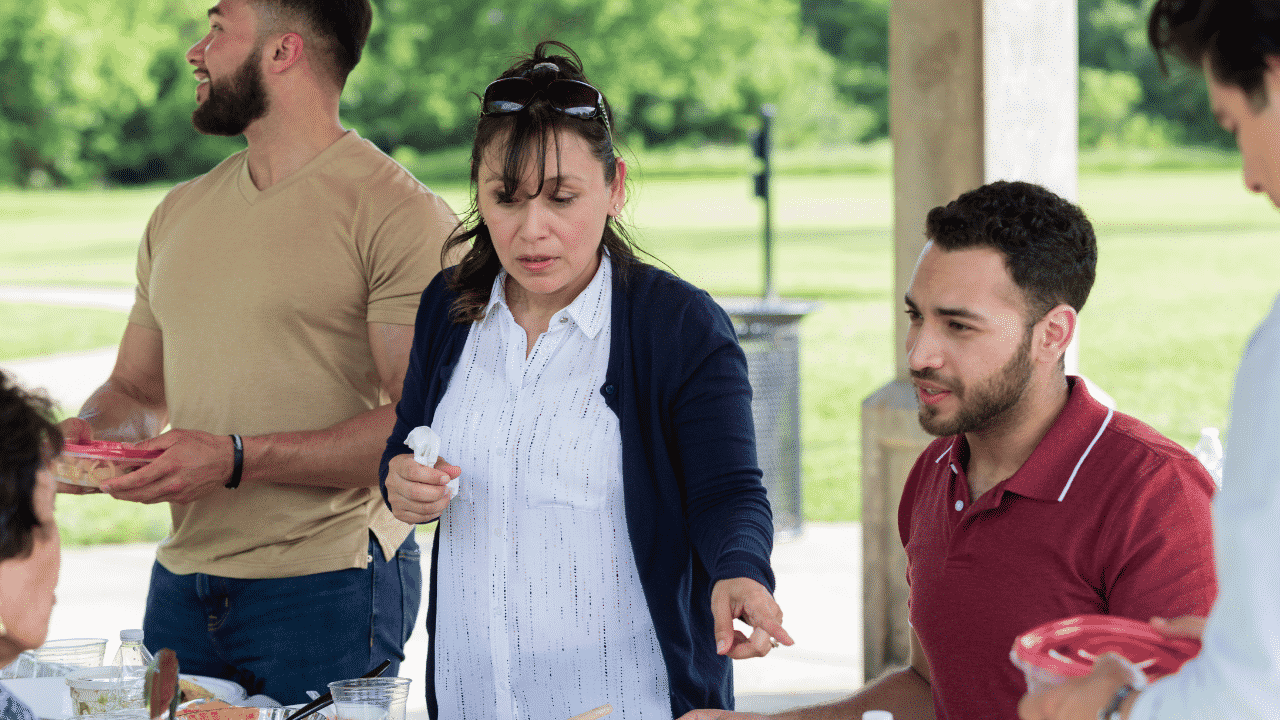Have you been struggling to engage your sibling in your aging parent’s care?
Perhaps you reach out and they don’t respond. Perhaps they refuse to help.
In this article I answer a question from a caregiver on the issue of siblings refusing to help with aging parent’s care. You’ll learn
- The importance of family relationships and dynamics among family caregivers
- Why some adult children may take on caregiving tasks while others avoid them
- 8 strategies for engaging an absent sibling in caring for aging parents
Dear Dr. Koepp
My mom has dementia and my sister has left me on my own to manage all of my mom’s care. I have tried reaching out with her and she just seems to be absent. It’s hard to take on my mom’s care all by myself and I wish that my sister was here to help. Can you give some tips on how to engage an absent sibling.
It’s common for one family member to take on primary caregiving responsibilities. This might fall to the person living closest to the older adult, family cultural traditions like maybe you’re the eldest child, or the most responsible.
If you’re in a position of trying to engage an absent sibling, chances are you’re in the role of primary caregiver. Even if your mom doesn’t live with you, it sounds like you’re the “go-to” person for managing her care, making decisions about her care, and providing care.
When we reach the stage of caring for aging parents, it’s likely that we have been living our own lives for quite some time away from our aging parents and built our own life. Some families respond to an aging parents needs smoothly and others have more of a rocky road. You’re sibling might be having a rough time of it. When we are brought into a caregiving dynamic, it can bring up all sorts of relationship injuries or unresolved conflicts that happened in the past. It can sort of magnify them- intensify them. Caregiving is a very intimate experience and being asked to return to this level of intimacy with a parent who we have separated ourselves from can be quite intimidating – bring up many intense emotions and expose dysfunctional family dynamics.
Chances are you’ve reached out to your sibling and they don’t respond or they keep it brief asking for updates but not offering to help.
- Ask to have a family meeting to discuss parents care.
- If they don’t respond, leave another message stating that you need to hear back from them by (give a date) or you will proceed without them. Though you hope they can be involved. (people have variety of ways that they demonstrate their boundaries- not responding is one way)
- If they do respond, perhaps start the conversation with asking how they feel about being a part of your aging parent’s care. Sometimes I hear people say, “I don’t want to offer to help too much for fear that I’ll be asked to do everything”, or “it’s not healthy for me to be involved”. This might be hard to hear since the result is that you’re the one left holding the bag of caregiving responsibilities
- Be open and honest about what your older parents’ needs are, what you are providing, and be specific about what you’re requesting from your sibling. (you’ll need to prepare for this up front.) If your sibling lives further away, you might ask them to contribute financially, maybe you ask them to visit so you can have a break – learn more about talking with your siblings about your aging parents care in my free caring for aging parents checklist.
- If they aren’t able to help in the ways you’re requesting, ask if they have other ideas of ways that they would be able to help. If they are unable to help with some of the practical or financial tasks, perhaps they can help with some of the emotional tasks. Do they have a positive relationship with your aging parent? Can they call and provide your parent with emotional support or friendly chats, etc.
- Respect your sibling’s boundaries and your own boundaries with caregiving tasks. Emotions can run high with caregiving tasks among siblings. Feeling disappointed in your sibling can lead to resentment, overwhelm, added stress, and burnout. It can help to remind yourself that boundaries are healthy, especially your own.
- Ask for help. Build the circle of support around you. Do you need more care for your older loved one than you can provide? Gathering resources around you is really important. Perhaps you need a home health aide, an adult day program, a friend to come and spend time with your parent so you get a break.
- If your sibling is willing to help but the two of you struggle to negotiate tasks and communicate in a healthy way, it can help to meet with a specialist to help you navigate this challenging time, like a mental health provider that specializes with older adults and caregivers, or a geriatric care manager, etc.



